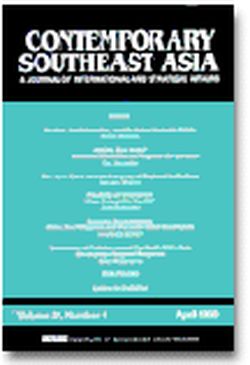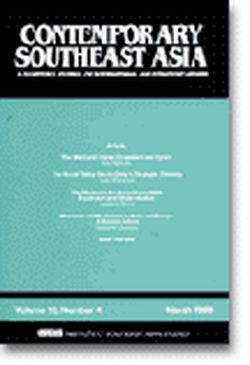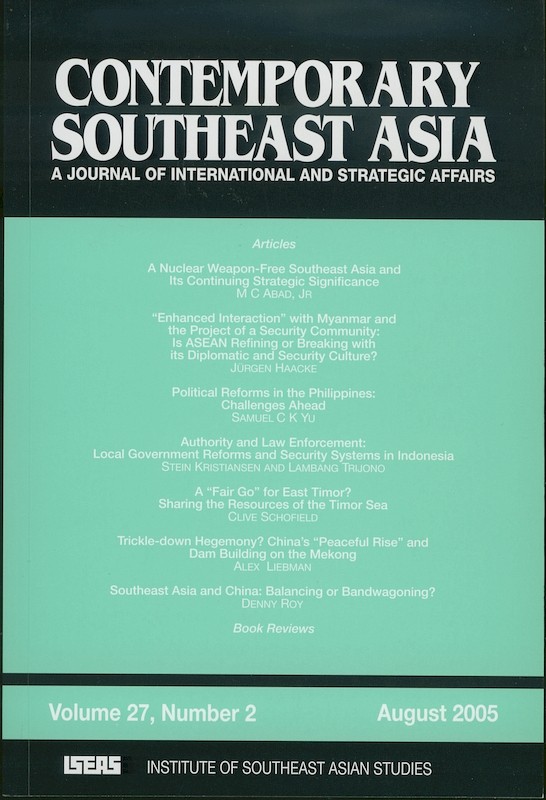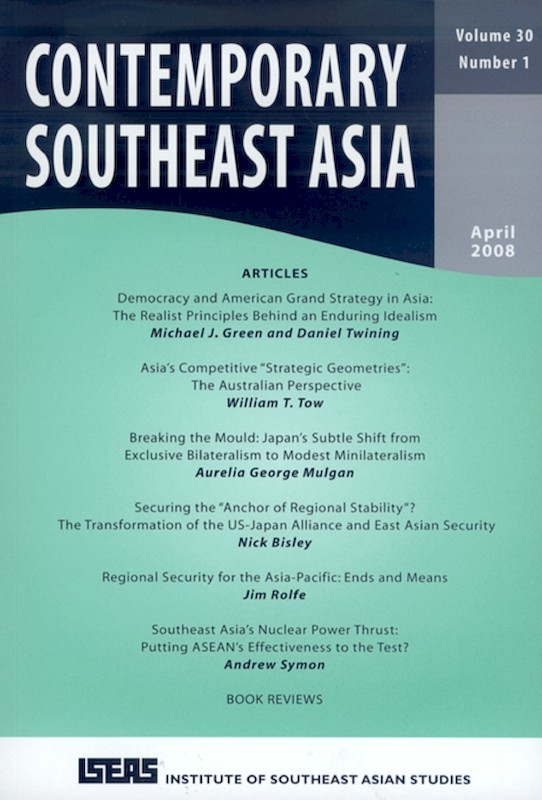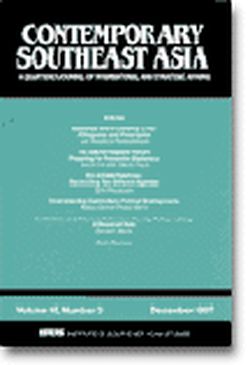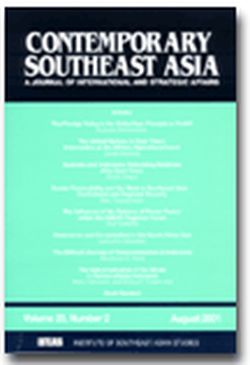Contemporary Southeast Asia: A Journal of International and Strategic Affairs Vol. 20/2 (Aug 1998)
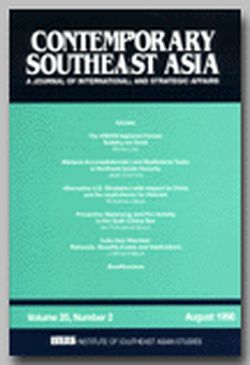
Date of publication:
August 1998
Number of pages:
112
Code:
CS20/2
Contents
-
Preliminary Pages
-
The ASEAN Regional Forum: Building on Sand, by Robyn Lim, contributor see abstractHoping that the ASEAN Regional Forum (ARF) can contribute to security in East Asia is akin to having expected the Little Entente in the inter-war period to resolve the strategic problems of France, Germany and Russia. North Asia is the locus of regional tensions, yet ASEAN clings to its centrality in the ARF. Arising from conflicts of strategic interests, those tensions cannot be ameliorated by the consensual approaches that have worked well in ASEAN. Apart from problems in Korea, strategic tensions in East Asia have their roots in Chinaâs willingness to use force and threat in pursuit of its interests. Chinaâs constant strategic pressure in the South China Sea has ASEAN in disarray. The ARF is doing little more than giving China opportunities to divide and rule.
-
Bilateral Accomplishments and Multilateral Tasks in Northeast Asian Security, by James Cotton, contributor
-
Alternative U.S. Strategies with respect to China and the Implications for Vietnam, by Peter Van Ness, contributor see abstractThis article analyses three alternative strategies for the United States in its policy towards the Peopleâs Republic of China, and assesses the implications of those three strategies for Vietnam. They are: 1) Realist Engagement, 2) Offshore Balancing, and 3) Co-operative Security. Each of the three describes a different vision and role for China in U.S. policy, which, in turn, suggests different implications for Vietnam and the East Asian region. Realist Engagement is essentially the present Clinton Administrationâs policy towards China, which combines engagement and containment. Offshore Balancing is based on a realist critique of the Clinton Administrationâs policy, and calls for a pulling back of U.S. strategic commitments to the region. Co-operative Security is an alternative solution to the problems identified in the analysis of the first two approaches.
-
Preventive Diplomacy and Pro-Activity in the South China Sea, by Ian Townsend-Gault, contributor see abstractThis article discusses the ways in which the jurisdictional disputes in the South China Sea are discussed and analysed, and offers an alternative view of the significance of the dispute concerning sovereignty over the Spratly Islands. The article suggests that the current focus on this question, and the possibility of oil production, has prevented proper consideration of other, more urgent matters, and has exacerbated the differences between the littoral states at the expense of their common interests in marine ecological protection, resource development, and other uses of the sea. The article also considers the impact and achievements of an informal initiative designed to promote maritime co-operation in the interests of sound ocean governance and confidence building as an alternative to the current impasse.
-
India Goes Nuclear: Rationale, Benefits, Costs and Implications, by J Mohan Malik, contributor see abstractA whole host of reasons led India to test five nuclear weapons in May 1998, an action which prompted Pakistan to follow suit some two weeks later. These series of tests took place at a time of unprecedented economic turbulence, and political and strategic flux in Asia. The tests might potentially lead to the geopolitical map of post-Cold War Asia being redrawn. This article examines the implications of Indiaâs nuclear tests for the future of the nuclear non-proliferation regime, nuclear deterrence, Sino-Indian rivalry for power and influence in the twenty-first century, and the changing balance of power in the Asia-Pacific region.
- BOOK REVIEWS
-
BOOK REVIEW: Transforming the Tatmadaw: The Burmese Armed Forces Since 1998, by By Andrew Selth, by Tin Maung Maung Than, contributor
-
BOOK REVIEW: Japan's Asia Policy: Regional Security and Global Interests, by Wolf Mendl, by Kim Ong-Giger, contributor

